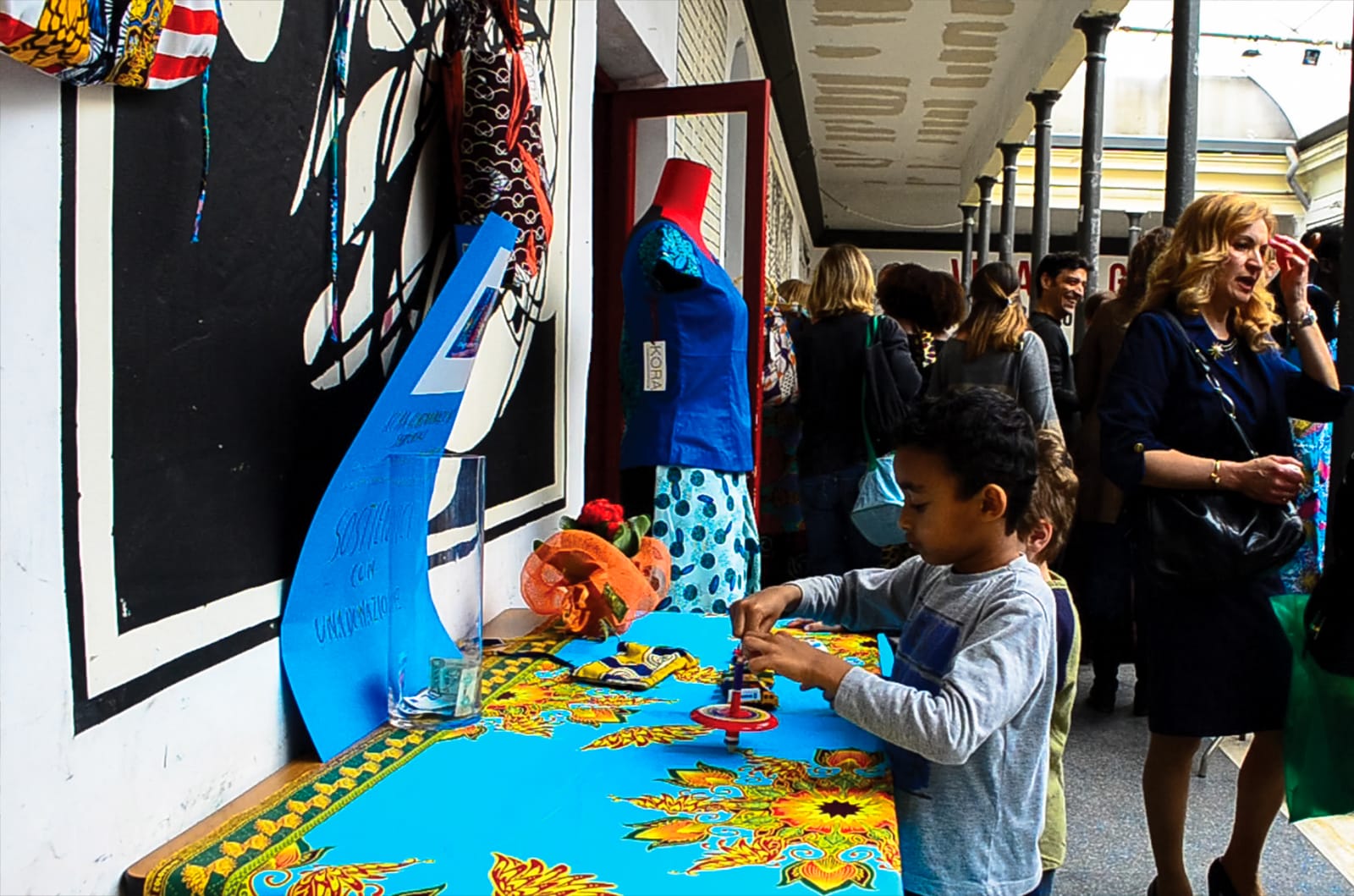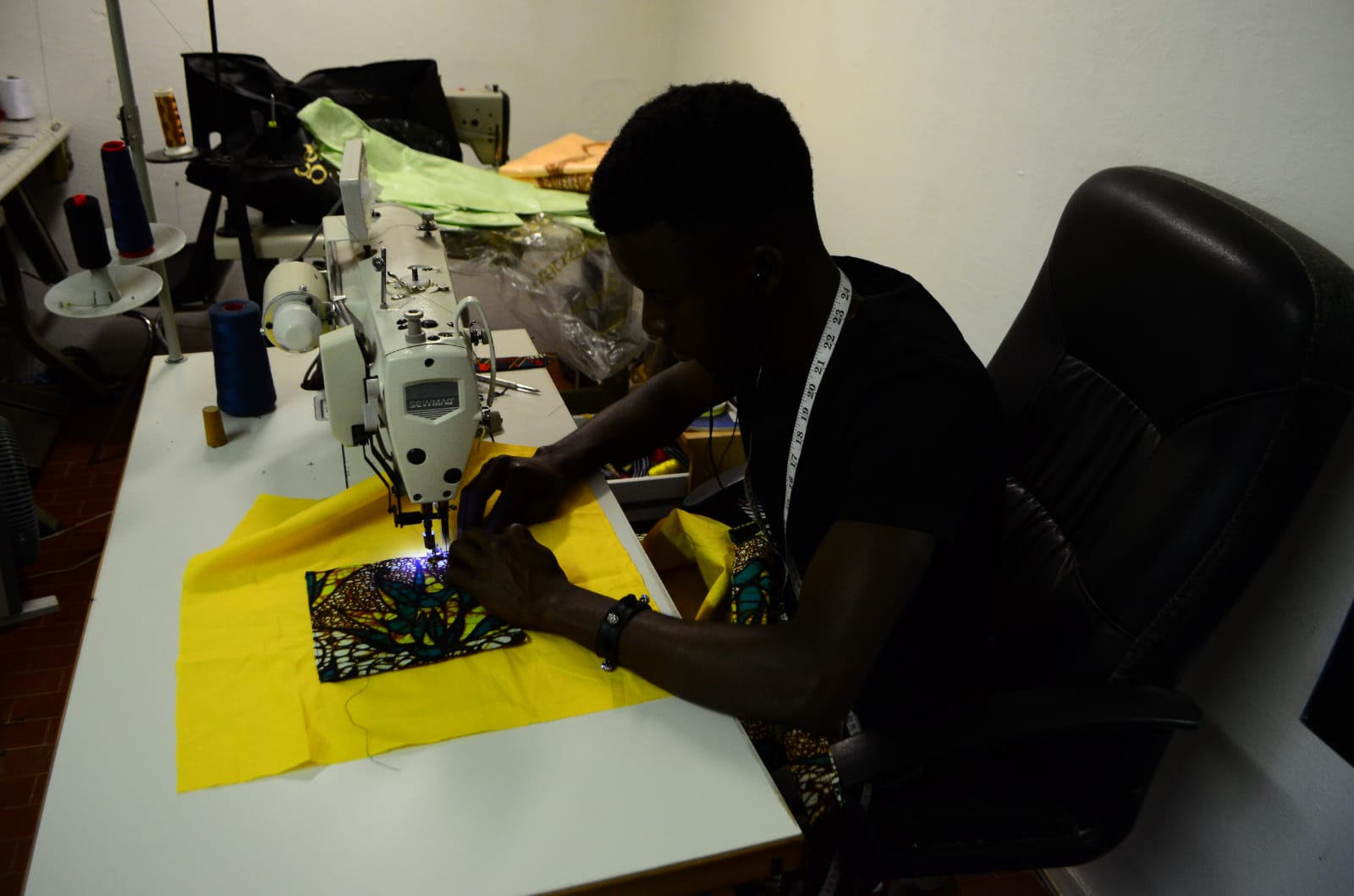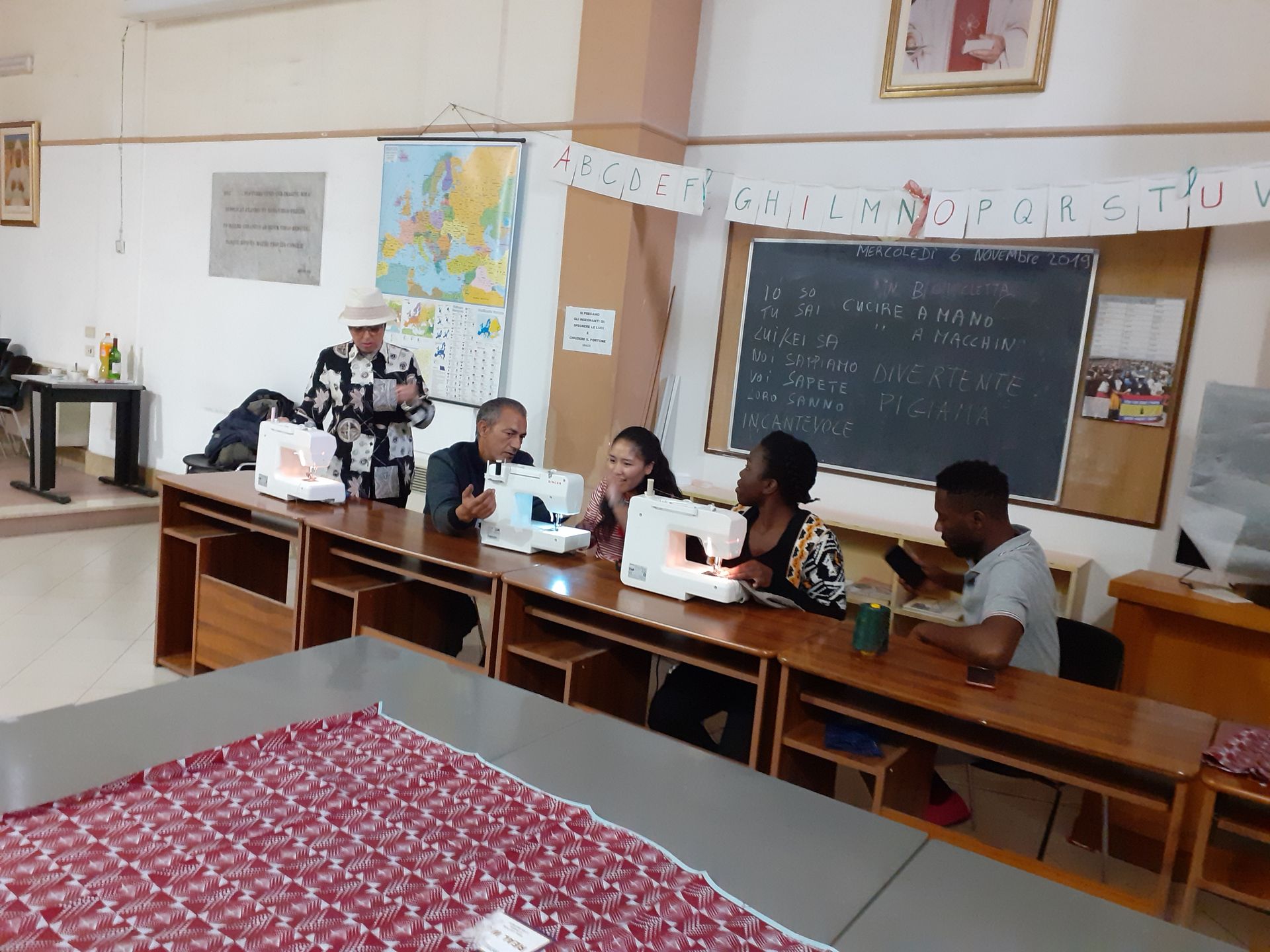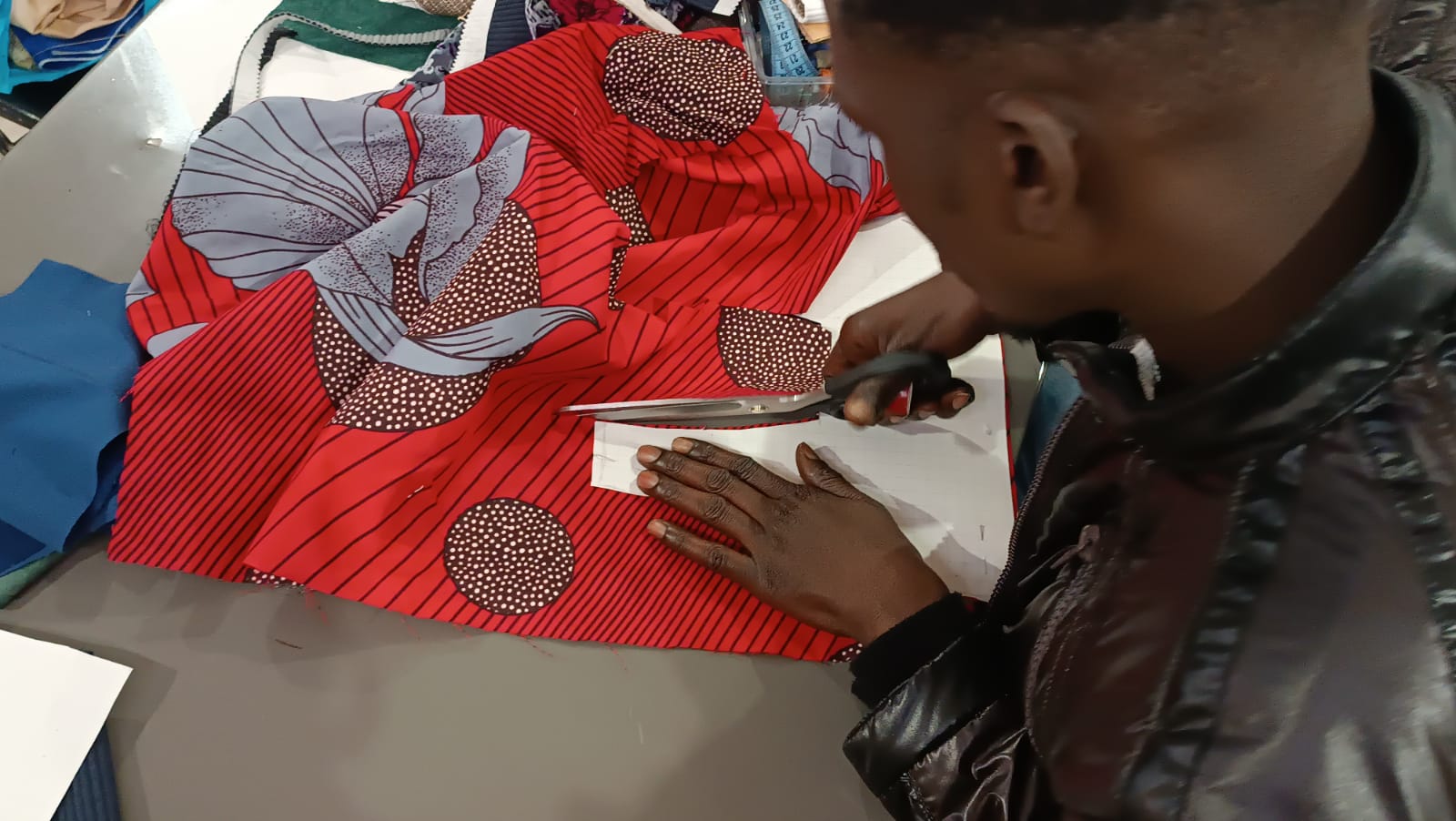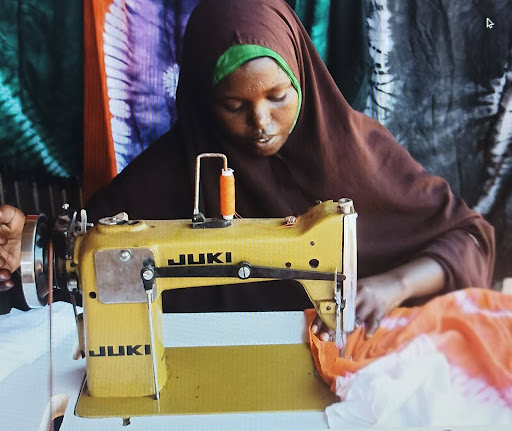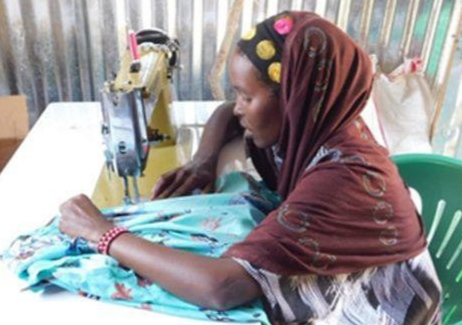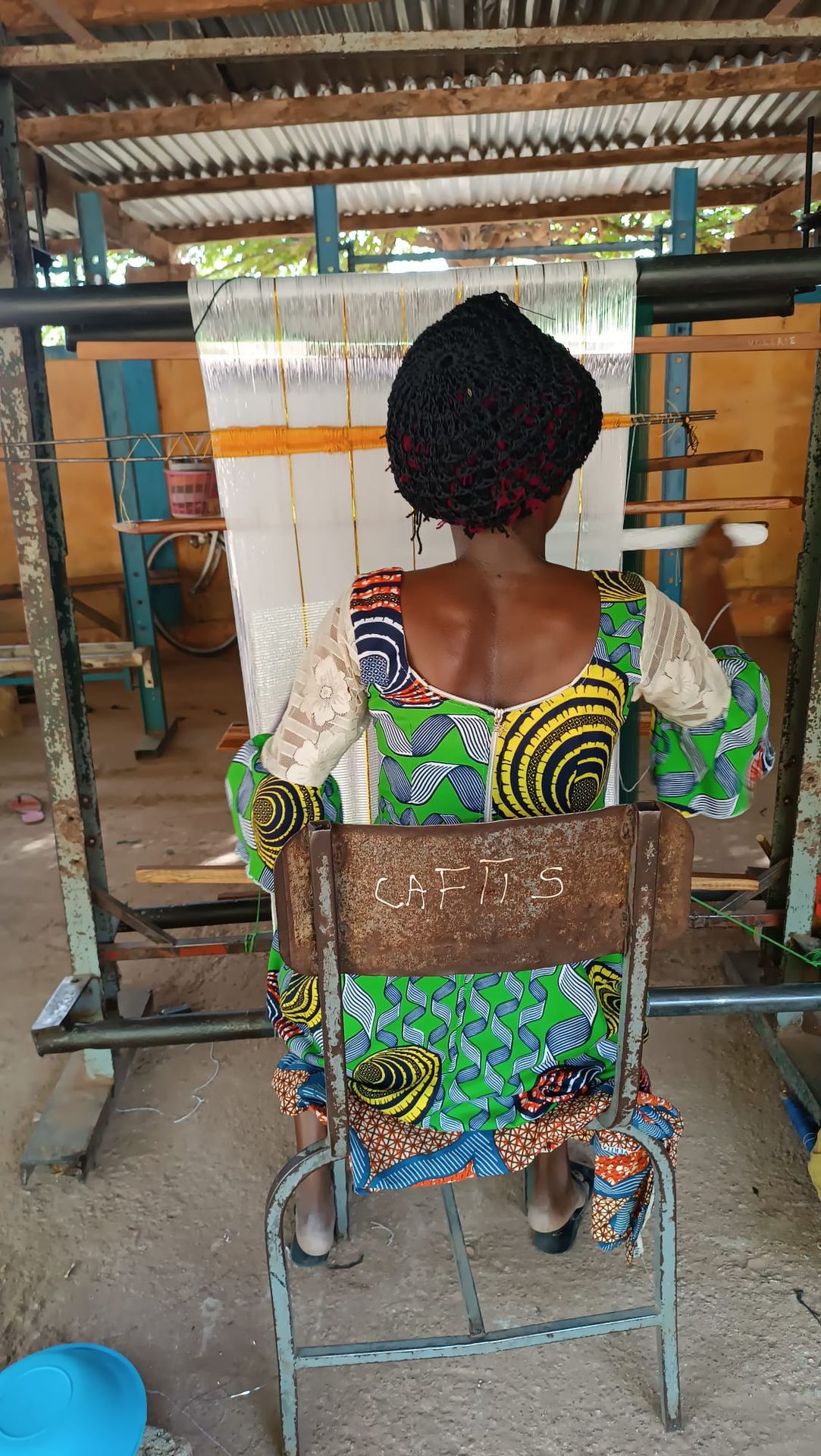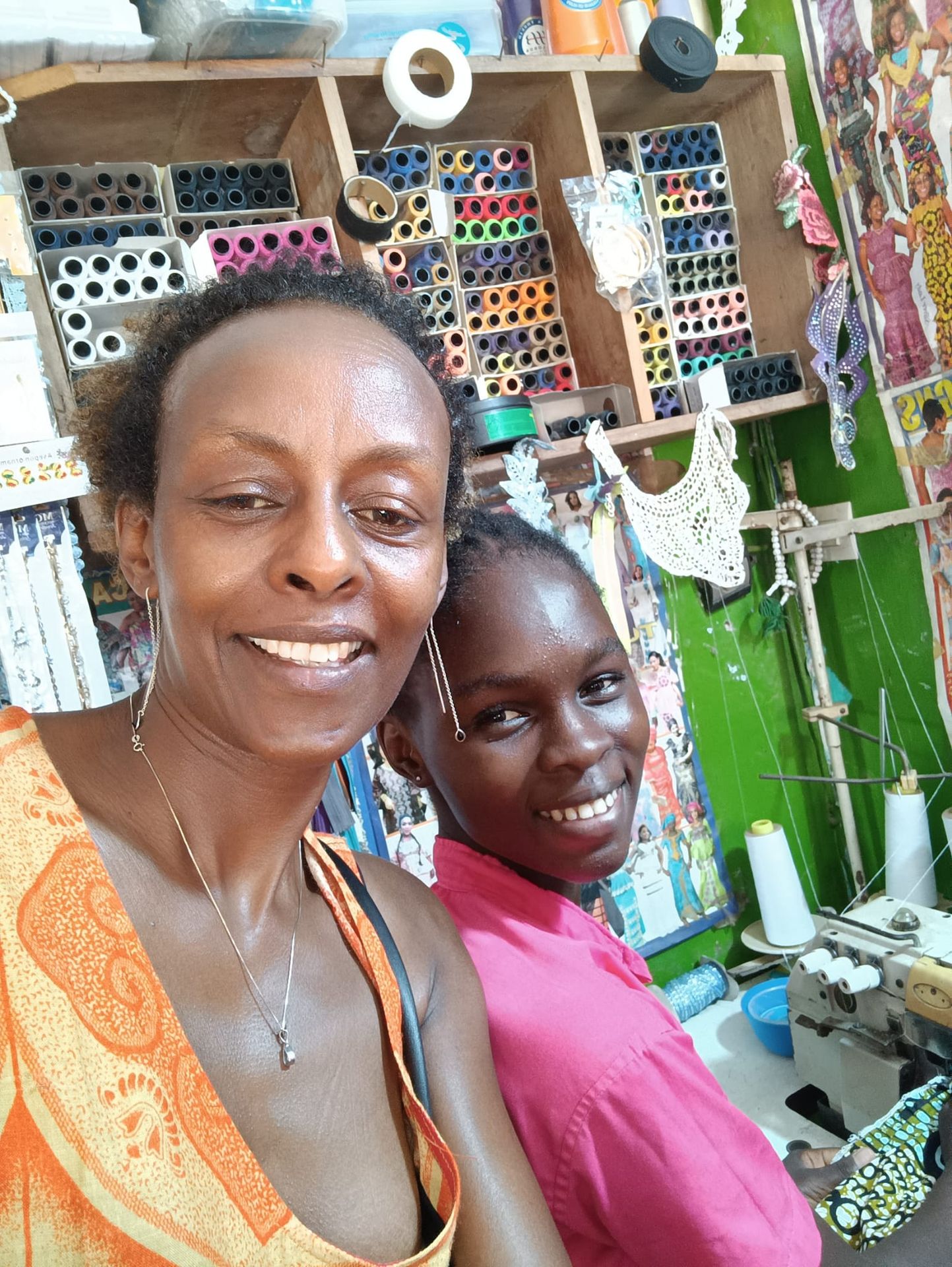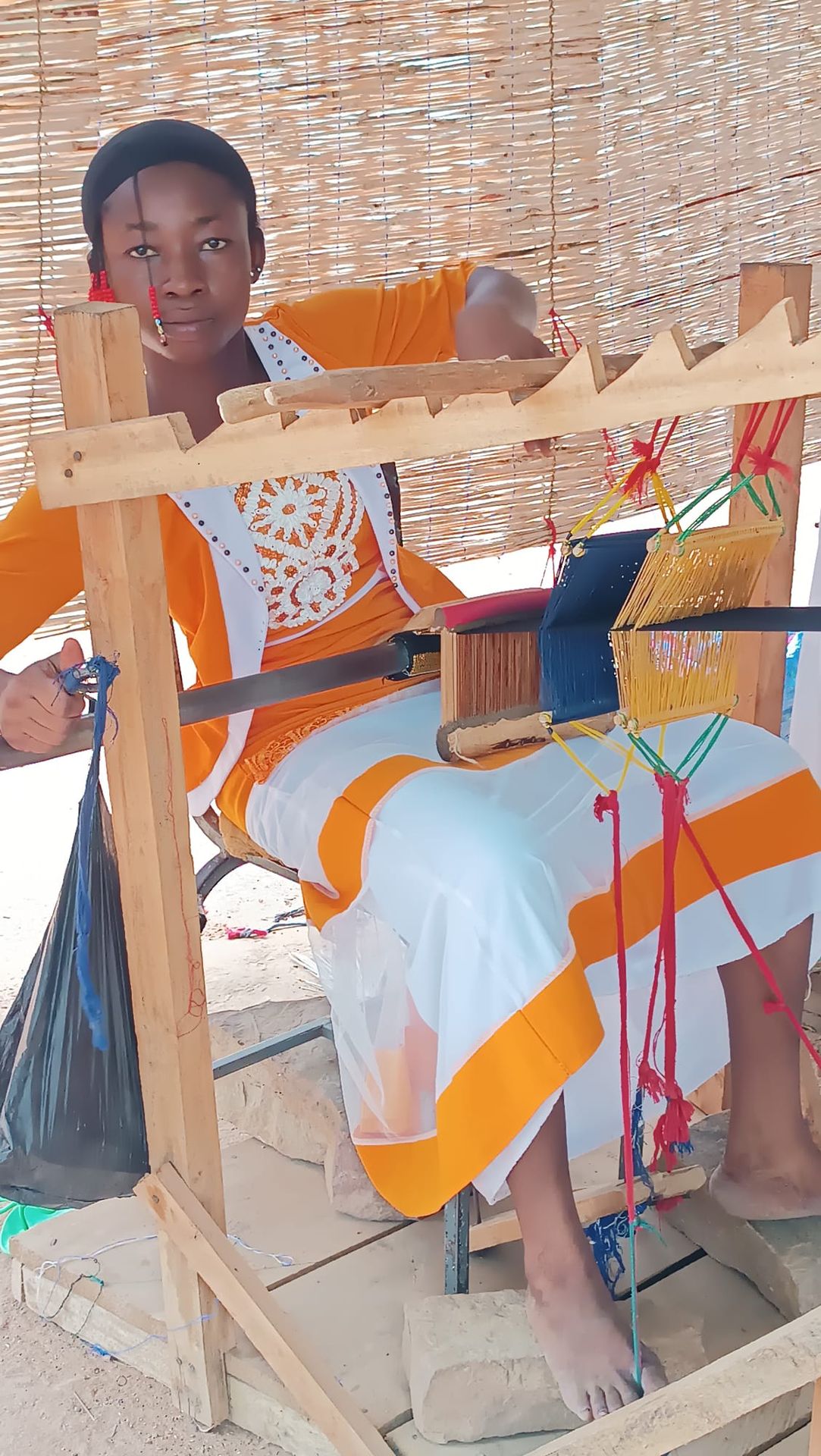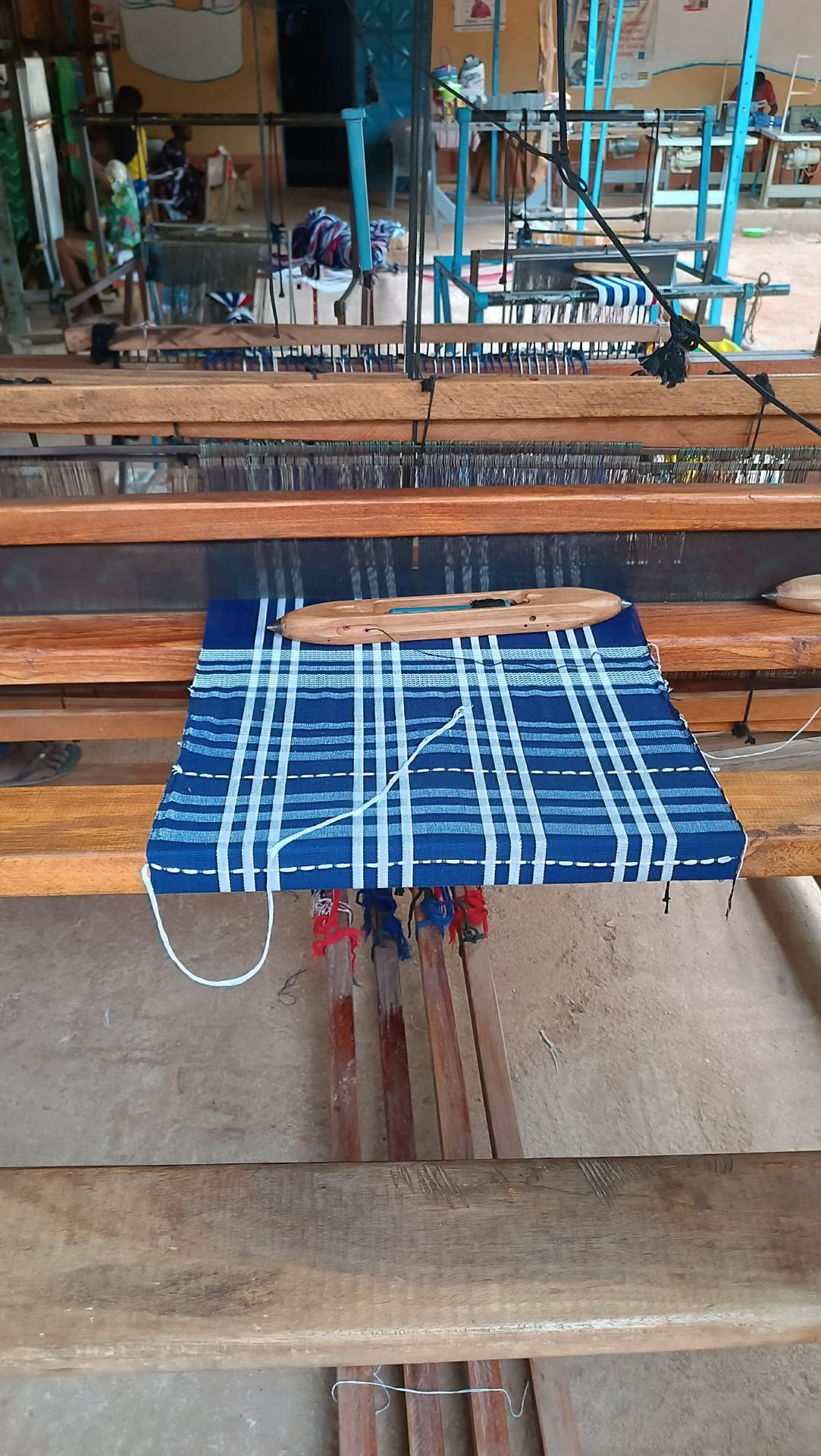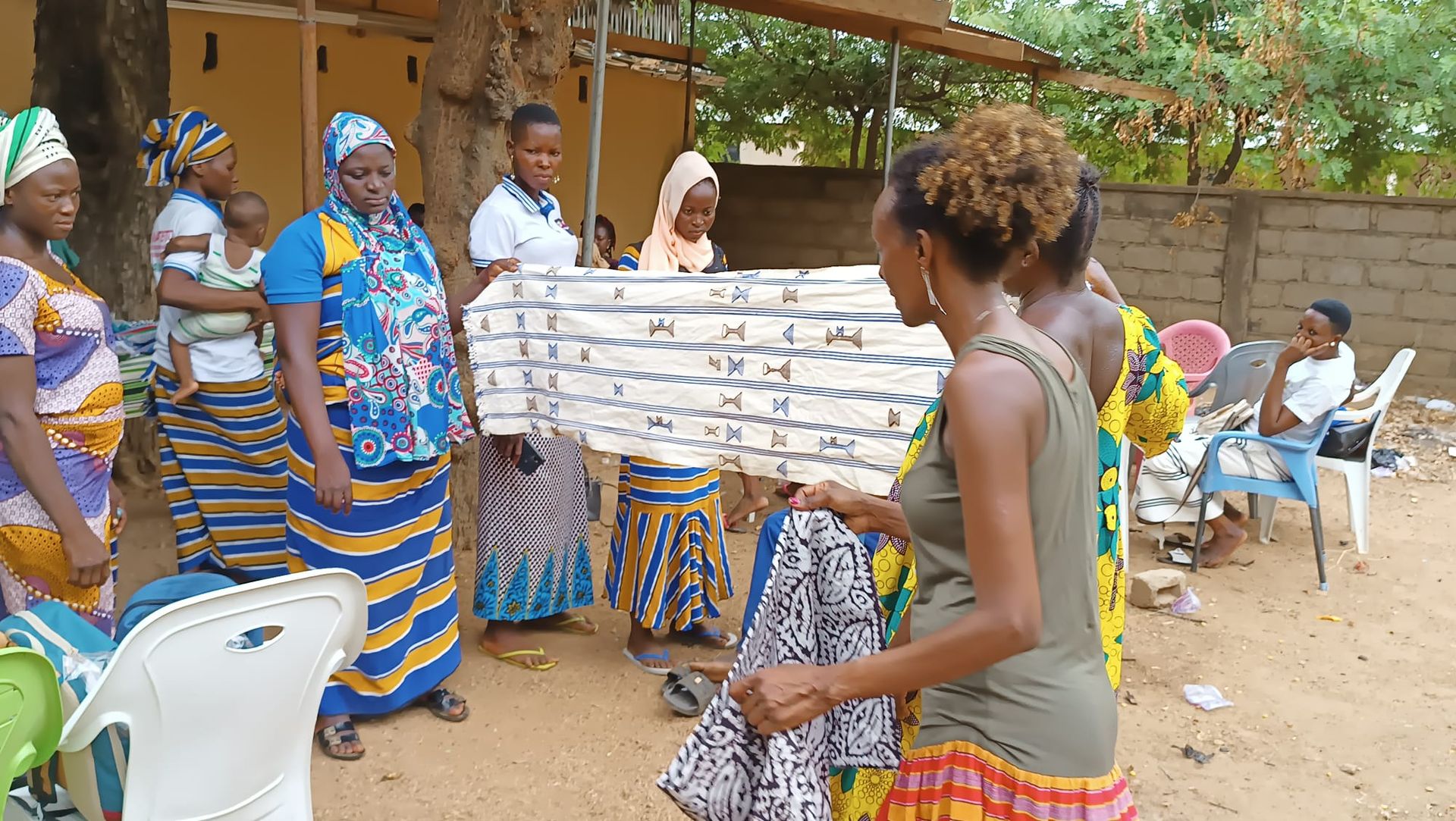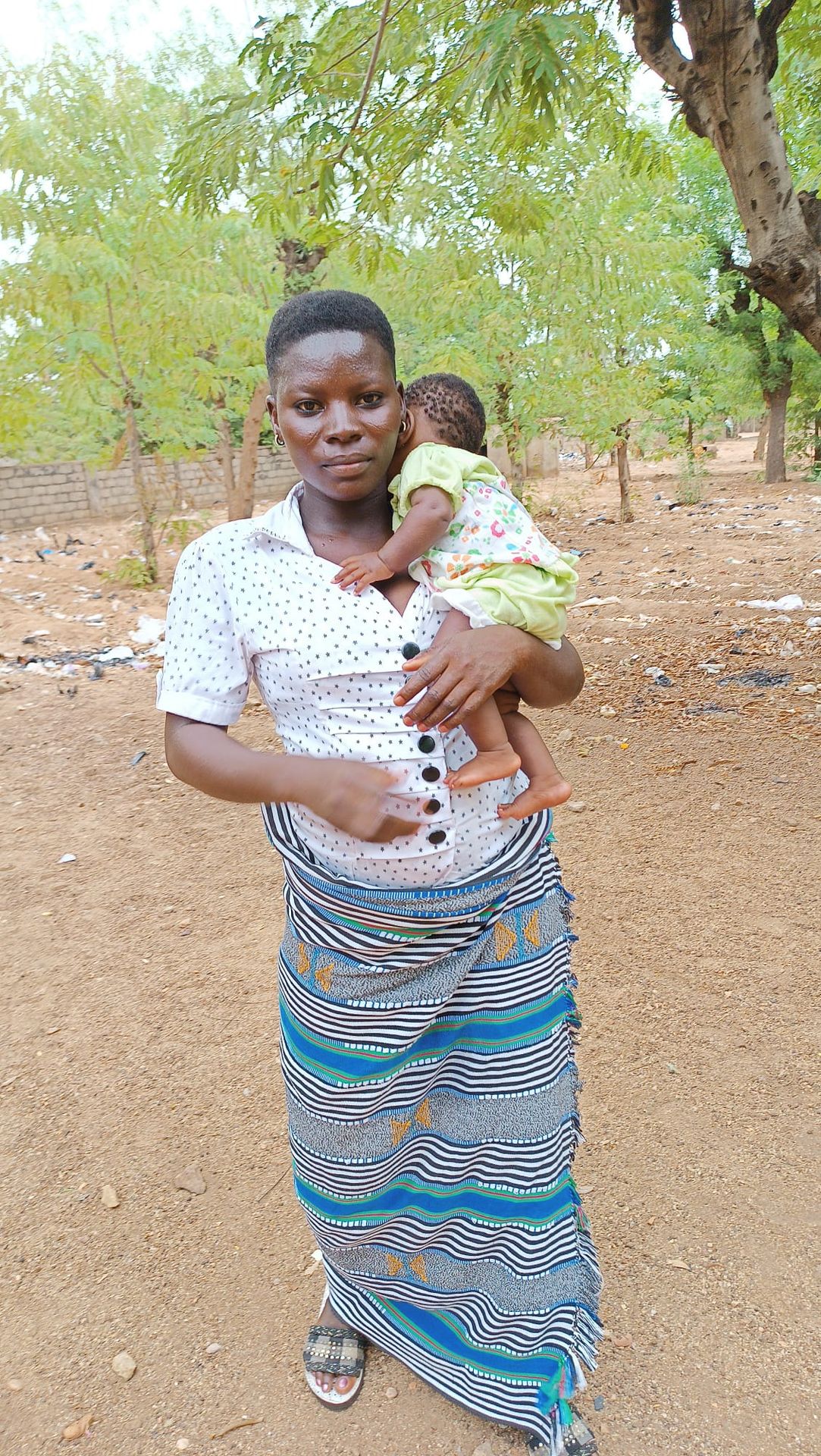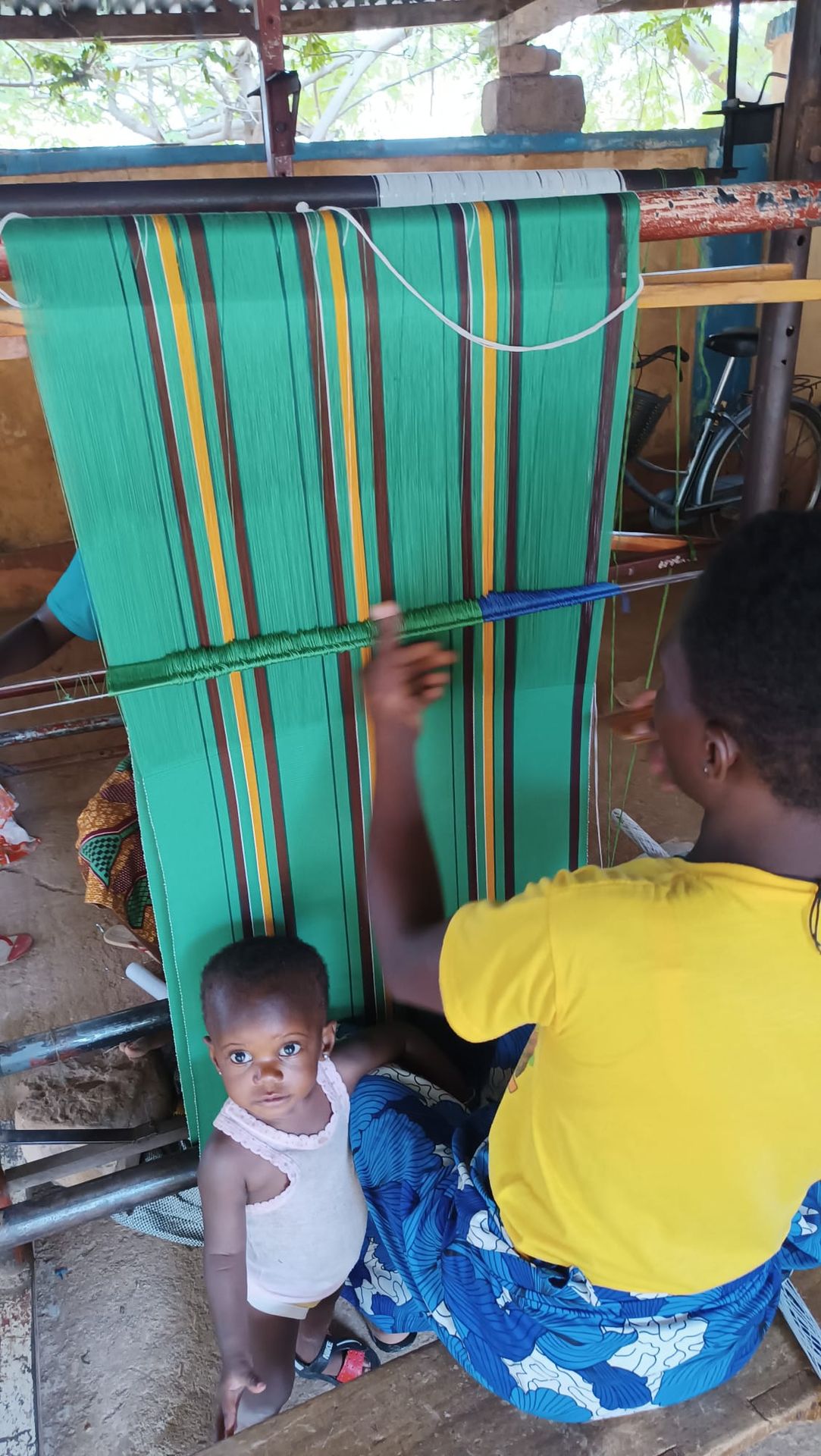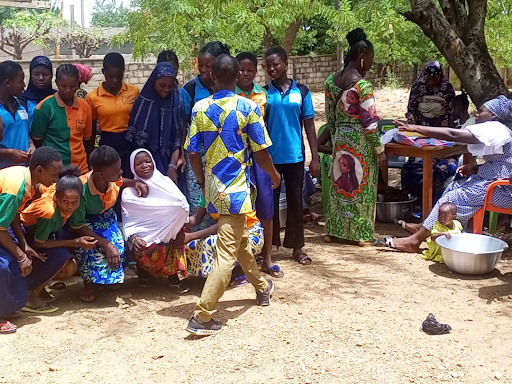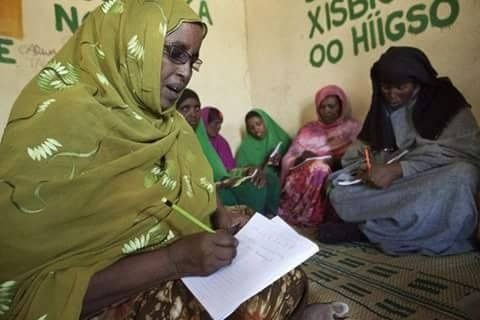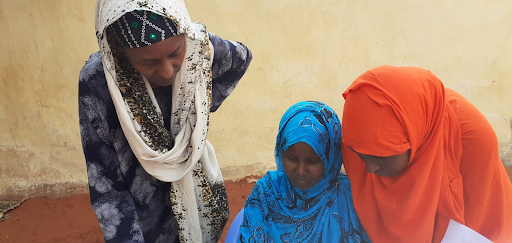THE PROJECTS OF KORA
KORA was born from the belief that solidarity and constructive interaction between people from diverse backgrounds are essential for a better future. Craftsmanship offers a unique opportunity to integrate people into professional and social pathways that contribute to collective growth
Artisanal Project in Rome
Since 2019, Kora has contributed to training programs in tailoring for women, young asylum seekers, and local residents in collaboration with the Comboni Fathers Association, ACSE, and various social promotion associations. Through the art of craftsmanship, Kora promotes social inclusion and integration across different groups and generations.
In partnership with the Comboni Association for Migrants and Refugees, Kora specifically offers tailoring training courses. These professional training courses are designed for migrants, asylum seekers, refugees, and local citizens of Rome. The project’s goal is to foster social interaction between diverse groups, provide vocational training, and encourage social and occupational integration. Additionally, it promotes intergenerational exchange by connecting senior and younger tailors, using the art of tailoring and social solidarity as practical tools.
For more information see https://infokorah.wixsite.com/kora
Wadajir Artisanal Project in Somalia
The Wadajir Project supports over 300 women in Abudwak, central Somalia, through a social cooperative of internally displaced women (IDPs), many of whom are single mothers with children. This cooperative, known as the Wadajir Women and Youth Social Cooperative, was established following two previous initiatives promoted by the social organization Kora from Rome.
One of these initiatives was a nutrition project, the Canteen Project, which provided a school cafeteria funded by IFAD with food supplies from the WFP. Another initiative, the Shabeel Pilot Project funded by IOM Italy, focused on access to credit through a cooperative system and a local credit mechanism called "ayuto." Subsequently, Kora has worked to support Wadajir women in preserving and transmitting traditional textile crafts, natural fabric dyeing, and tailoring skills.
This textile and tailoring project is a livelihood generation activity that Kora continues to support, aiming to enhance its reach within their international network. By providing vocational training and promoting the sale of products made by the cooperative, the project seeks to offer women economic autonomy, dignity, and sustainable employment by revitalizing traditional skills. The Wadajir Project is further supported by organizations like WFP, diaspora communities, and fair-trade networks in Italy, the UK, Sweden, Belgium, and the USA.
Wadajir tailors
Thanks to the sales from beKora, internally displaced families, led by women like Farhia and Nadifa, have been able to join Kora’s projects in Somalia. Through this opportunity, they have accessed training at the Wadajir Women’s Cooperative in Abudwak, where they acquired skills in traditional weaving and tailoring.
This training has equipped Farhia and Nadifa with the skills, contacts, and tools needed to start their own tailoring and sales businesses, allowing them to achieve greater economic independence and support their families
The Caftis Textile Project in Togo
The central entity of the cooperative network is the Centre Artisanal de Formation en Tissage (CAFTIS), located in Dapaong, the capital of the Savanes Region in Togo. The CAFTIS network includes over 1,000 artisan weavers, with more than 80% of them being women.
The project was established with the goal of preventing early marriages among girls. The textiles produced are entirely made using traditional techniques, with raw materials sourced locally or semi-processed materials from Ghana. The project is supported by Bekora through the purchase of finished textile products, including materials and Batik. This initiative not only preserves traditional crafts but also offers economic opportunities for women, fostering their independence and improving their livelihoods.
The NANAIPO Cooperative Project in Togo
The production of shea butter offers employment opportunities to 60 women and young workers of the NANAIPO Cooperative (which brings together all the shea butter producers from the savannah regions in Togo), providing them with dignified work and the hope of a better future. Italian initiatives, such as the “Le BCC con il Togo” project, are a cornerstone of Italian cooperation in Africa.
In its recent missions to the West African country, BeKora S.r.l.s and ass.Kora have contributed to the commercialization of products from several Togolese cooperatives, such as the Centre Artisanal de Formation en Tissage (CAFTIS) (a textile cooperative involved in the production of cloth, traditional fabrics, and shea butter). This initiative aims to secure greater access to the Italian market, with the primary goal of improving the socio-economic conditions of the local population, especially women and their children.
Shabeel Pilot Project
Financial Inclusion with a Prevalent Mutuality Approach
The Shabeel Pilot Project is a financial inclusion initiative targeting women and youth living in the slums of Abudwak, Somalia. The project focuses on nomadic communities who have lost their primary source of income—animal husbandry—and have been forced to migrate as climate-induced internally displaced persons (IDPs) into urban settlements. Approximately 3,000 people live in these slums. According to the mayor of the city, two out of three women are unemployed, and 80% of youth under 25 years old are without work.
In addition to the success of the project, Shabeel also helped develop management and administrative capabilities for the local partner, which is often a typical "point of failure" for many projects. This initiative was funded by the AMICO Award - IOM Italy in 2020, the Somali Diaspora, and the association's own resources, and was implemented by Kora.
Canteen Dhabad Project – School Feeding, Nutrition, and Capacity Building in Somalia
Dhabad School Feeding, Nutrition, and Capacity Building Project (2018-2019)
In collaboration with IFAD, WFP Somalia, Save the Children UK, and CESPI Italia, Kora implemented the “Progetto Canteen” in Dhabad, Somalia. This project aimed to provide school meals to internally displaced persons (IDPs) living in Dhabad and surrounding villages, serving over 1,000 children aged 3 to 12 years at the only school in the area.
The primary goal of the project was to encourage school enrolment, particularly for girls who are often excluded from education. Kora developed an integrated development model, working alongside both local and international organizations to ensure that disadvantaged children had access to both food and education.
The project included specific training and involvement of local stakeholders to ensure long-term sustainability after the financial support ended. With IFAD funds, a school canteen was established and equipped. Approximately 100 womenwere trained in the management of the canteen, which played a critical role in feeding the children.
The success of the project relied heavily on community involvement, with the mayor, teachers, and families all contributing to its success. Additionally, Kora acted as a liaison with WFP Somalia to systematize food supply contributions from WFP, ensuring the continued provision of meals (with WFP support still active in 2022).
